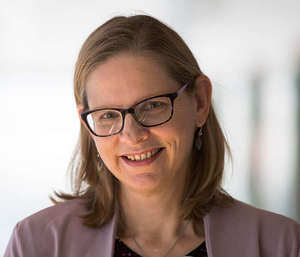"Rethinking America’s Urban Water Infrastructure: Resource Efficiency, Access, and Public Health," by Nancy Love

Abstract
Water infrastructure renewal is receiving significant attention today as many of our systems are meeting (or exceeding) design life. Cities in countries with well developed economies like the U.S. enjoy economic prosperity in part due to the development of heavily centralized water systems that create high levels of water quality and public health, on average. While centralized water infrastructure has served us well, I argue that we should not be constrained to applying 20th century thinking as we plan for the future. The current revolution in information technologies (IT: software, hardware and devices) has the potential to transform urban water infrastructure by creating more resilient and flexible hybrid systems that are comprised of an interacting collection of centralized and decentralized physical & IT components. I contend that the development of IT-enabled “smart” hybrid water system solutions has the potential to: improve the efficiency with which we use resources (e.g., water, power, nutrients); enhance equitable access to water services; change consumer and provider behavior around water; and ensure that we sustain a high level of public health, even as more people live in close proximity to each other. In this talk and through the use of case studies from across different regions around the globe, I will explore these scenarios and the changing ways in which people live. As an example, one case study will include the development of “smart” distributed nutrient recovery systems that have been deployed and are being tested at the University of Michigan.
Biography
Nancy G. Love is the Borchardt and Glysson Collegiate Professor in the Department of Civil and Environmental Engineering at the University of Michigan. The Love Research Group works at the interface of water, infrastructure and public health in both domestic and global settings. They focus on assessing and advancing public and environmental health using chemical, biological and analytical approaches applied to water systems using both physical experiments and computational models. Through their work, they evaluate the fate of chemicals, pathogens and contaminants of emerging concern in water with relevance to public health and the environment; use technologies to sense and remove these constituents; and advance technologies that recover useful resources from water. Dr. Love emphasizes interdisciplinarity and critical thinking in students; consequently, many of her students are co-advised across disciplines and sectors and gain a broad range of professional skills in return. She is a licensed professional engineer (P.E.) in the state of Michigan and a Board Certified Environmental Engineer (BCEE). After completing her M.S. degree, she worked as a process design engineer for 3 years, predominantly on drinking water treatment plant and distribution system design and construction.
Please email Diane Westerink at westerink.5@nd.edu for the zoom link.
Seminar sponsored by the Department of Civil & Environmental Engineering & Earth Sciences